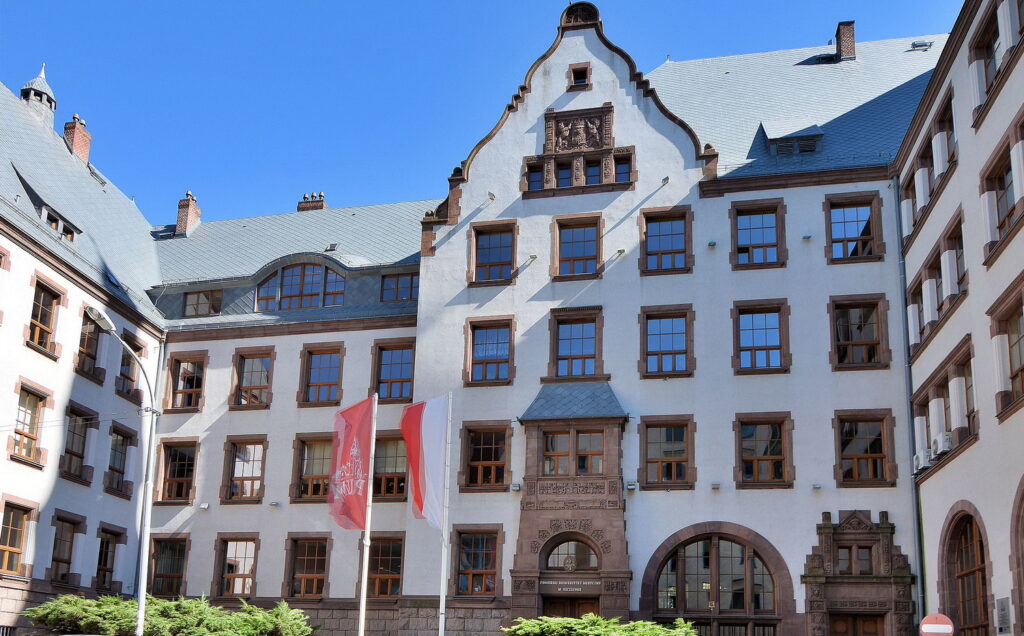Embarking on a journey to study medicine abroad is a life-changing decision that requires careful consideration of various factors. From academic excellence to cultural integration and post-graduation prospects, choosing the right country is crucial for a successful medical career. In this comprehensive guide, we’ll explore some of the best countries to study medicine, with a special emphasis on why Poland is emerging as a favored destination.
The Global Landscape of Medical Education
Medical education varies significantly across the globe, with each country offering a unique blend of academic rigor, clinical exposure, and cultural experiences. Aspiring medical students often consider factors such as language, cost of living, quality of education, and post-graduation opportunities when selecting a destination.

Top Countries for Medical Studies
United States:
- Medical Specialization: The U.S. medical education system allows for a high degree of specialization. Students can pursue niche fields of medicine, from aerospace medicine to sports medicine, tailoring their education to specific career interests.
- Collaborative Research Culture: The collaborative nature of medical research in the U.S. facilitates interdisciplinary projects. Medical students often have opportunities to collaborate with professionals from fields like engineering and computer science, fostering a holistic approach to healthcare innovation.
- Diversity in Patient Population: With a diverse population, the U.S. offers medical students exposure to a wide range of medical cases, enriching their clinical experience. This diversity prepares them to address healthcare disparities and challenges in a multicultural society.
United Kingdom:
- Integrated Professional Development: The UK medical education system integrates professional development modules, focusing on skills such as communication, leadership, and ethics. This holistic approach prepares students not only as skilled clinicians but also as well-rounded healthcare professionals.
- Problem-Based Learning: Many medical schools in the UK employ problem-based learning methods, where students tackle real-life clinical cases. This approach enhances critical thinking and problem-solving skills, preparing students for the dynamic nature of healthcare.
- Global Health Initiatives: UK medical schools often engage in global health initiatives, offering students opportunities to participate in international healthcare projects. This global perspective contributes to a broader understanding of healthcare challenges beyond national borders.
Poland:
- European Recognition: Poland’s medical degrees are recognized throughout Europe, facilitating ease of mobility for students who may want to practice medicine in different European countries. This recognition enhances the value of a medical degree obtained in Poland.
- Student Exchange Programs: Poland actively participates in international student exchange programs, allowing medical students to experience different healthcare systems and broaden their cultural competence. This exposure contributes to a well-rounded medical education.
- Focus on Preventive Medicine: Poland places a significant emphasis on preventive medicine within its curriculum. This focus aligns with global health trends and prepares students to address health challenges at both individual and community levels.
Germany:
- Interconnected Healthcare System: Germany’s medical education system is closely linked with its healthcare system. Students benefit from this interconnectedness by gaining insights into healthcare policy, management, and the socio-economic factors influencing healthcare delivery.
- Early Patient Contact: German medical students often have early and frequent patient contact, fostering clinical skills from the initial stages of their education. This hands-on approach contributes to the development of competent and patient-focused healthcare professionals.
- Emphasis on Ethical Considerations: German medical education places a strong emphasis on ethical considerations in healthcare. Students engage in discussions and case studies that explore the ethical dimensions of medical practice, preparing them for complex decision-making in real-world scenarios.
Australia:
- Indigenous Health Focus: Australia’s medical programs often include a dedicated focus on Indigenous health, addressing the unique healthcare challenges faced by Aboriginal and Torres Strait Islander communities. This emphasis reflects a commitment to cultural competence and inclusivity.
- Simulation-Based Training: Many Australian medical schools incorporate advanced simulation technologies into their training programs. This approach allows students to practice clinical skills in a controlled environment, enhancing their confidence before engaging with real patients.
- Research Integration: Australian medical education integrates research seamlessly, encouraging students to engage in research projects alongside their clinical training. This dual emphasis on research and clinical practice prepares graduates for evidence-based medicine and continuous learning.
Poland: A Hidden Gem for Medical Studies

- Affordability: One of the most significant advantages of studying medicine in Poland is the affordability factor. Compared to Western European countries or the United States, tuition fees in Poland are considerably lower. This makes quality medical education accessible to a broader spectrum of international students.
- International Programs in English: Polish universities offer a plethora of medical programs in English, eliminating language barriers for international students. This allows students to fully engage with their coursework and clinical experiences.
- State-of-the-Art Facilities: Poland has heavily invested in modern medical infrastructure, providing students with access to state-of-the-art laboratories, hospitals, and research facilities. This ensures that students receive hands-on training using the latest medical technologies.
- Cultural Richness: Poland’s rich cultural heritage, vibrant cities, and welcoming atmosphere make it an ideal destination for international students. The country’s central location in Europe also facilitates easy travel to neighboring countries during breaks.
- Global Recognition: Polish medical degrees are recognized globally, ensuring that graduates can pursue further studies or practice medicine in various countries without facing major hurdles.
Read more: Why international students should study in Poland – (ready4uni.net)
Work Opportunities Post-Graduation

Securing a medical degree is just the first step. The availability of post-graduation opportunities plays a crucial role in the decision-making process for aspiring medical professionals. Poland excels in this aspect as well.
- Internationally Recognized Degrees: Graduates from Polish medical universities are well-regarded internationally. The curriculum is designed to meet global standards, enhancing the employability of graduates in various healthcare systems.
- EU Membership Benefits: Poland’s membership in the European Union (EU) facilitates the mobility of healthcare professionals within the EU member states. Graduates can explore job opportunities across Europe with ease.
- Growing Healthcare Sector: Poland’s healthcare sector is experiencing steady growth, creating a demand for skilled medical professionals. Graduates can explore job opportunities in public hospitals, private clinics, and research institutions.
- Research and Innovation: Poland’s commitment to medical research and innovation opens avenues for graduates interested in contributing to advancements in healthcare. Collaborations with international research teams are common, providing graduates with diverse opportunities.
Conclusion
Choosing the right country for medical studies is a decision that involves weighing various factors. While many countries offer excellent medical education, Poland stands out as a hidden gem, combining affordability, quality education, and promising post-graduation opportunities. As the global landscape of medical education evolves, Poland emerges as a frontrunner, providing a holistic experience for aspiring medical professionals. Consider Poland not just as a destination for your medical education but as a stepping stone to a fulfilling and successful career in medicine.
